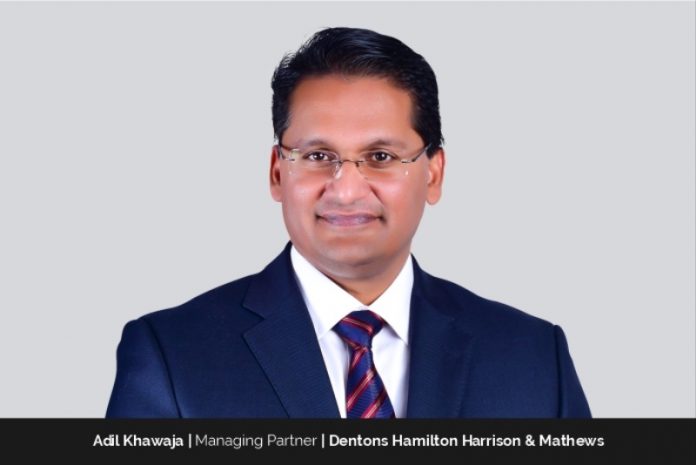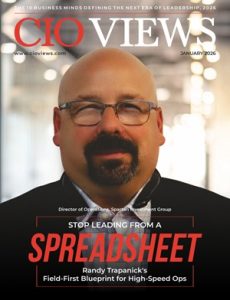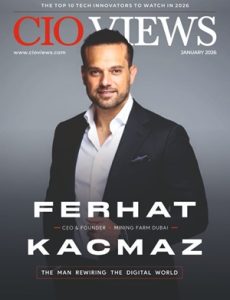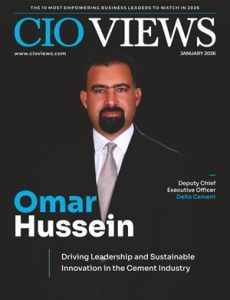Adil Khawaja originally had no plans of pursuing a career in law. After graduating, he started a company. About 30+ years later, he is the go-to person for all legal matters and the Managing Director at Dentons Hamilton Harrison & Mathews, one of Kenya’s largest law firms. Adil is a trailblazer in every sense of the word; always leading from the front and never asking others to do a job that he himself would not do.
In a career spanning 30 years, Adil has seen a lot of success, and according to him, he has achieved everything that he had dreamed of as a young man. He counts building a rock-solid reputation for himself in practice, developing strong relationships with clients and partners, and retain talent as some of his professional achievements. Apart from being the Managing Partner, Adil also serves on many boards as a director and some as Chairman.
Professional Journey: From a Novice to Managing Partner
A young Adil wanted to be a journalist but was convinced to study law. After graduation, he started a tour company, which became very successful. One day, by chance, he met a senior partner at the high court, where he had gone to get his petition in to be called for the bar. The senior partner enquired about where Adil had disappeared. When he informed him that he was running a company, he said, “We wish you were around. We would have offered you a job.”
Adil didn’t express his interest as his focus, at the time, was on his tour company. But the senior partner persisted and asked, “What if we made you an offer?” Adil said that he would consider it.
How he became a part of Hamilton Harrison & Mathews – now Dentons Hamilton Harrison & Mathews– is another interesting story. While in law school, Adil never gave a serious thought to where he would like to work after receiving his law degree –
Adil recalls that he looked for only European-sounding firms and chose to apply to five of them. So he wrote a letter to those firms and attached his transcript. And he received a reply from four out of the five, asking him to come for an interview, and they all offered him a place in their firms. “But I don’t know why I was attracted to Hamilton Harrison & Matthews,” Adil says. “It may have to do with the experience at the interview. It was a little more casual, relaxed, and friendly. And the interview was not in a meeting room but in one of the partner’s office – there were two partners then.” He became interested in working at the firm during the interview itself.
He wanted to become a commercial lawyer, but he was offered a position in the litigation department, which he accepted. He continued in litigation for 14 years before changing. “That is how I ended up here,” Adil says.
About 9 years ago, he decided to throw his hat in to become the managing partner of the practice. At the time, there were a lot of aging partners who didn’t have many young partners in the lineup. That’s how he became the Managing Partner.
Ushering in Changes at the Firm
As Managing Partner, the first step Adil took was to see whether they could bring in more young blood. “A lot of the European firms that came from the European heritage, they had an aging partner profile and didn’t have youngsters and equal partners sitting around the table,” he says. Adil took that as a challenge. And one of the first things he did was identify talent and recommend talent who could be brought in as partners.
Soon after stepping into his new role, Adil realized the importance of Information technology in the near future. Also, before he became the managing partner, he used to run the IT committee for the practice. So, when he took over, they embarked upon a CES transformation with regard to technology and the way they use it. “We wanted to go beyond just using computers for emails or word processing,” Adil says. They wanted to use it for file archiver, to look for knowledge and document management.
Adil made a significant decision to relocate the law firm from the city, emphasizing that they were among the pioneers in making this move. When he joined the firm in the early 1990s, they had operated from three premises, collectively possessing 110 years of experience. However, with the city becoming increasingly congested and the original building losing its former prestige after 30 years, Adil took a daring step to relocate the firm to a different location seven years ago. He successfully convinced the partners to support this decision.
He didn’t achieve success with the next decision he took as Managing Partner. “I thought of increasing the scale and breadth of knowledge and experience in the firm,” he says. “We were very well-established as a strong litigation and commercial practice, predominantly looking after corporate clients. But our private and individual client profile was low.”
So, Adil took the initiative to seek out and merge with a law firm that shared similar values and goals. After identifying a suitable partner and going through the merger process, they didn’t stay together for an extended period. Unfortunately, the partner didn’t align well with the firm, and Adil now sees the decision to merge as a significant learning experience.
Fast forward 4 years, Adil was able to identify Dentons as a merger partner and worked with them. He says that they wanted to have a relationship with Hamilton Harrison & Mathews. The two firms combined to form Dentons Hamilton Harrison & Mathews in 2018.
During the pandemic, when every other firm was asking their lawyers and other staff to work from home and shutting down their offices, Adil decided to rent another floor in their building, and he fitted out the building within three months. “Within the two years of the pandemic, I increased our office space, by adding 25 percent more space, rather than contracting it. Most people were contracting it, and today, they are going back to increasing it,” he points out.
Adil made a decision to expand the office space with the intention of having all employees work from the office since the firm had invested in technology.
According to Adil, he observed a decrease in productivity when lawyers and other professionals worked from home. He believes that having people in the office fosters a work environment that motivates them to meet their commitments. Adil mentions that the presence of the team in the office ensures accountability, leading to slightly higher productivity, faster turnaround times, and reduced need for follow-ups.
“We got everybody back in the office fairly early,” Adil says. So, their productivity increased, and they remained profitable. And because Adil reacted differently, he didn’t have to lay off anyone.
Challenges Over the Years
Each stage of Adil’s career has come with its set of challenges. When he joined the legal fraternity, he was “very raw” and had some basic skills acquired at law school and university. However, he neither had the proper knowledge nor the depth of experience to apply the skills he had picked up.
The first challenge at the start of the career, Adil says, is “getting the right exposure,” and the second is, “having the determination to stick to it because the initial years in the legal practice are very hard for everybody.” He also points out that today, it is not as hard as it was then, as it is a “lot more structured” and has a “better program in the law school and pupillage.”
Challenges that one faces in the middle stage of their career are different from what they encountered in their initial years. The middle stage is about making one’s reputation, letting everybody know that they are good at their job, that they can turn it around well, and that they can be relied upon, according to Adil. That becomes a challenge in the next phase of one’s career.
“You got the skills and have honed them, and now, you want to tell the people that you are a good lawyer and they can give their work, and you also have to build relationships,” Adil says. “That all becomes a challenge in the middle of your career.”
And, when one is past the middle stage of the career, they have to again deal with a new set of challenges. The late stage of the career is probably the longest part for most lawyers – it lasts from their 50s to their 70s, and according to Adil, in this stage of their career, they are trying to mentor and retain talent, maintain relationships with clients, and trying to contribute to society in different ways. “That becomes a challenge again, because they pose a challenge on your time and resources, and there is also the challenge to deliver to everybody well.”
Views on What Is Success
Success means different things to different people at different times. And, to Adil also, success has meant different things at different stages of his life. His view of success has changed many times in his working career. If someone had asked him to define success in his 20s, he would have said, “making partner.” “You then dedicate and devote all your time to making partner,” Adil says.
Today, 30 years after practice, he believes that success has nothing to do with a career or job, and it has everything to do with being satisfied, being a good parent and husband, and being a good leader to the community and society. That is how Adil defines success now.
As far as career, practice, and legal fraternity are concerned, Adil is a success story. But now, his focus has shifted. “I want to see how I can help change the lives of people who are less fortunate,” he says. “I want to see how I can mentor and grow people. I want to see how I can help youngsters to change their lives and have a very decent work-life balance.”
He believes that a lot can still be achieved with a good work-life balance. He, however, does not consider himself successful in that. He starts very early in the morning and gets home after 10 p.m., and he also works most weekends and travels often for work. The hectic work schedule leaves him with not enough time for himself and his family. “So. I’m not very successful at that [work-life balance] at this stage in my life,” Adil says.
New Leader with Fresh Ideas and More Energy
As a leader, Adil has set for himself certain targets to achieve at a certain period. He also does not want to stick around as Managing Partner forever. He has given himself around 7 to 10 years to do this job, and then he plans to leave it to somebody who would bring in more energy, enthusiasm, and fresh ideas.
“The hardest part of leaving is that you are leaving a position that you have enjoyed and made a lot of impact in,” Adil says. “But it is very important to actually leave that position when you are at your high and doing well. And then you should let somebody else take it even higher and even further.”
They also want to focus on improving their client portfolio, retaining their clients, and retaining the talent – which starts with identifying good lawyers and training them well, and encouraging them to stay here, Adil adds.
The Future of Legal Industry
Adil believes that a lot is going to change in the legal industry, especially how they are going to deliver legal services using technology. He feels that their clients would want services delivered faster, cheaper, and better than they were delivered in the past.
And a lot of the jobs that require regular skills would be taken over by technology. “As lawyers, we have to improve our skills, where we have the applications to certain disputes and certain types of facts, which the machine may not be able to do,” Adil says. “And the machine will also not be able to take the human factor out. We will have to improve on that aspect as well.”
He also points out that they now have a new generation of lawyers, people who believe in working smarter than working harder – that thought is put into them from the time they go to school. So, the workforce is more tuned in with what they want to do, and they want to do it faster. “So, everything that we are doing is setting us in that direction,” Adil says.
Message to Aspiring Lawyers
Adil stresses hard work in his message to aspiring lawyers. He tells them to put in a lot of work into this [legal profession] as nothing comes easy. “You can’t go buy knowledge and experience – it is something you’ve to gain,” he says.
“So, just work hard, get the experience, and be patient,” he adds. “Many youngsters are impatient. They would like to succeed faster and own a condo or the most expensive car. They’ve to first put in the time.”





